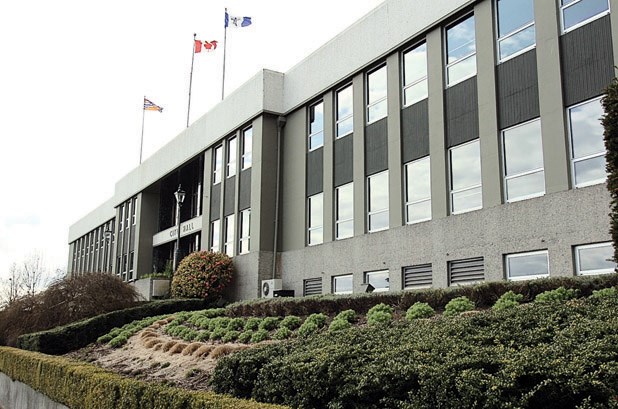Royal City residents will be on the hook for increases to property taxes and utilities in 2017.
On Monday, council received a staff report recommending a 2.98 per cent tax increase, which represents the cost of paying for ongoing municipal services, increases related to salaries and benefits, and staff to deal with workload issues and strategic initiatives.
Capital projects being funded in 2017 include maintenance and replacement of transportation infrastructure and equipment, renovations to city hall and the public library, relocation of the animal services facility and tow yard, upgrades to railway crossings, construction of the Front Street mews and the Canada Games Pool project.
“For an average residential strata home assessed at $396,000, the increase would be $31 in taxes and $36 in utility fees,” said Colleen Ponzini, the city’s manager of financial services. “For an average single-family dwelling assessed at $1.1 million, the increase would be $89 in taxes and $66 in utility fees, and for a residential property on the high end, assessed at $2 million, the increase would be $158 in taxes and $66 in utility fees.”
A business assessed at $2.1 million will see a $670 tax increase, a light-industry business assessed at $4.2 million will have an increase of $1,870 and a heavy industrial business assessed at $45.8 million will get an increase of $38,989.
On the residential front, Ponzini said the city ranks eighth out of 19 municipalities in Metro Vancouver in terms of property taxes, and 11th when taxes and utilities are combined.
In addition to the property tax increase, residents will also see a 3.5 per cent increase to the electrical rate, a four per cent increase to the water rate, a seven per cent increase to the sewer rate and a one per cent increase to the solid waste rate.
Despite the need to replace aging infrastructure and to make system upgrades to address the rapid growth in the region, Ponzini said the city does its best to keep increases down. While the city has the second highest rates for the sewer utility because of its aging infrastructure and a requirement to separate the combined sewer and storm water system, she said the city’s water and solid waste rates are below the average in Metro Vancouver.
From 2018 to 2021, staff project annual increases of seven per cent in the sewer utility, three per cent in the electric utility, four per cent in the water utility and one per cent in the solid waste utility.
New Westminster resident Larry Church is concerned about the rising tax rate in the city and the impact the projected 40,000 new residents will have on taxes.
“New West, under MLS, is one of the highest taxed areas. It’s a concern for me as a senior because we don’t have income that we can draw on for these increases,” he said. “My concern is, what is going to happen down the road?”
Although this year’s budget has about $800,000 in new revenue attributed to new construction, Mayor Jonathan Cote said that growth also puts pressure on city services.
“There are two sides to that coin,” he said. “As the city does grow, there’s no doubt that increases the revenue the city gets in, but also as the population grows the demand for services and other activities also grows.”



